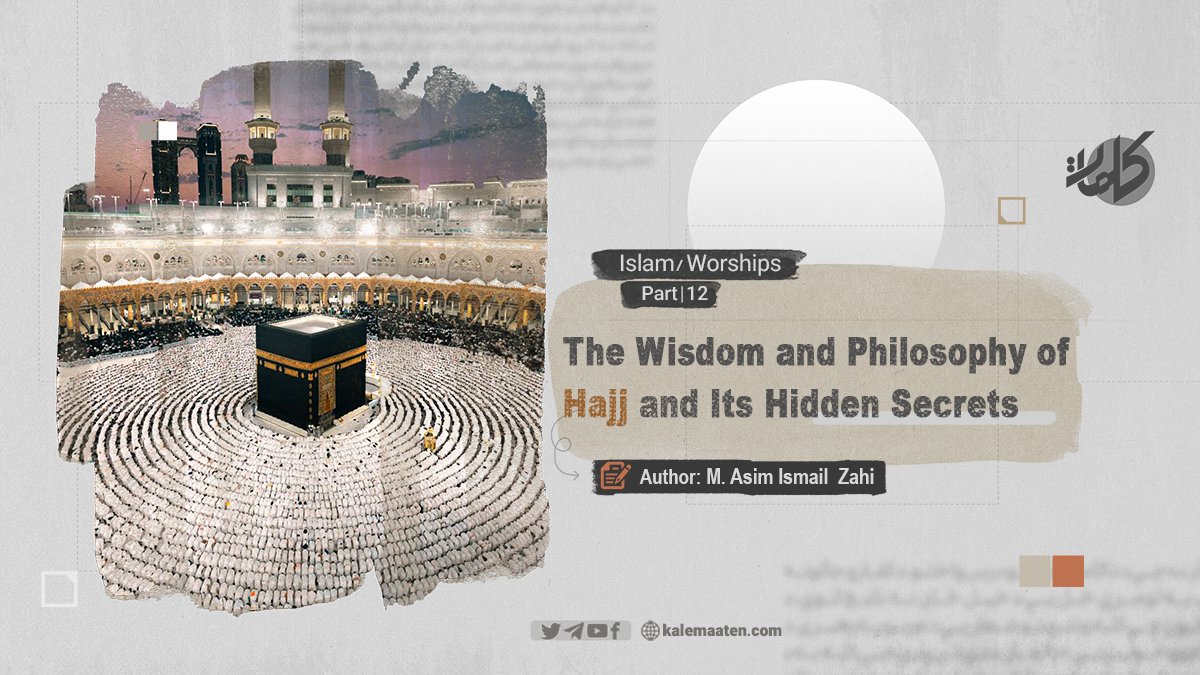
Author: M. Asim Ismail Zahi
The Wisdom and Philosophy of Hajj and Its Hidden Secrets (Part 12)
Hujjat al-Wedah and Its Educational and Rhetorical Value
The Holy Prophet (PBUH) performed the obligatory Hajj in the tenth year of Hijrah, accompanied by one hundred thousand people. This Hajj was his final pilgrimage and his farewell to the Ummah.
All evidence indicates that this Hajj was divinely intended, rich in detail, and not a random occurrence; rather, this Hajj was performed at its appropriate time. “وَكُلُّ شَيْءٍ عِندَهُ بِمِقْدَارِ” (Translation: “And everything has a certain measure before Him.”) Its delay carried many wisdoms and lofty interests; Islam had spread throughout the Arabian Peninsula, the number of Muslims had increased, faith had strengthened, love had grown, and the people were prepared to learn and benefit from it. Hearts and eyes were eager to observe and meditate, and the moment of separation had approached; it was inevitable that the Ummah would need to bid farewell. Therefore, the Holy Prophet (PBUH) left Medina to perform Hajj, meet the Muslims, teach them their religion and rituals, bear witness, deliver trust, express his last instructions and recommendations, take a firm pledge from the Muslims, and erase the traces of ignorance, destroying them and trampling them underfoot.
This Hajj was so fruitful that it took the place of a thousand lectures and a thousand lessons. It served as a school, a mosque, and a mobile camp where the ignorant were educated, the heedless were enlightened, the discouraged and the lazy were revitalized, and the oppressed were empowered. A cloud of mercy encompassed them all, whether in residence or during the journey—the cloud of companionship, friendship, education, and supervision by the Holy Prophet (PBUH).
One of the effects of the intellectual maturity of the Muslims and their deep love and dependence on everything that came from this cherished personality is that they recorded every minute of this journey and every small event. Such events are often overlooked in the travels of great men, leaders, kings, rulers, scientists, and geniuses. This devotion is characteristic of true lovers, who appreciate every detail regarding their beloved, enjoy reminiscing about them, and leave no matter—big or small—unmentioned, nor do they neglect any rare occurrence. The Holy Prophet (PBUH) used perfume when putting on Ihram; narrators mention who did this for him and specify the type of perfume used. They relate: «عن عائشة رضیاللهعنها قالت: طيبت رسول الله صلیاللهعلیهوسلم بيدى بذريرة فى حجة الوداع للحل والإحرام» “Then Hazrat Ayesha (may Allah be pleased with her) perfumed him with (the seed) with her hand.”
In such a way that the shine of musk could be seen on his head and beard, as the fragrance of that time was musk.
Then the Holy Prophet (PBUH) marked his sacrifice, and narrators explain its size and details, questioning whether it was on the right or the left side and how the blood flowed from it. They narrate details of his cupping, which, while being a medical practice, has no direct connection to the acts of Hajj, and they describe the location of the cupping and the person who accompanied him on this journey. They recount who shaved his hair and how it was divided, specifying who took the hair from each side of his head. All of these details stem from profound love, and searching for such matters in the lives of leaders and renowned nations would be a futile task.
In contrast, many nations have neglected the lives of their prophets, their biographies, their experiences, and the stages of their lives, wasting invaluable information that could complete their histories. What we know about the life of Prophet Jesus (PBUH) covers only the last three years of his existence. There are other religious figures in the civilized world whose names and a few incidents remain but offer no utility, quenching no thirst, leading no generations, or enlightening any paths.
Continues…


